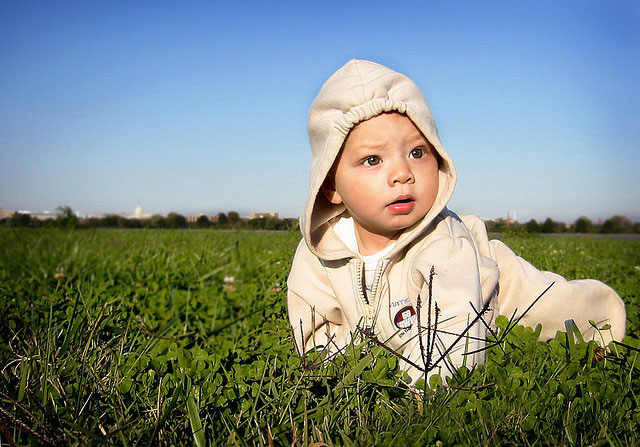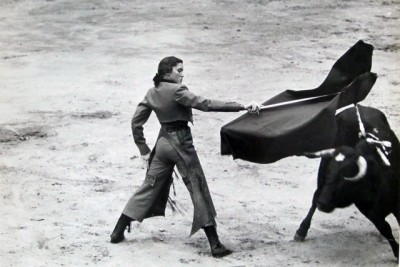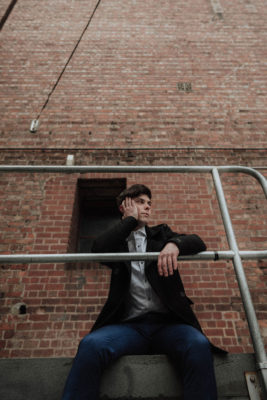
Leticia Urieta
QUERENCIA
The first time my sister Mari lost her baby, only twenty weeks, the doctor assured her that she could try again. “The body is miraculous, it can bounce back from anything,” as though her womb just needed to be cleared of the cluttered, grasping mess inside.
I was recruiting a student for my college, flipping through brochures in her living room. They sent me all over the Southwest as their official bilingual recruiter. The girl sat next to me and ran her hands over the glossy pictures of the campus. She would be the first in her family to go to college. Her mother, who sat on my other side, peered at the pictures of the dormitories. She paused over the listings of scholarship information and fees accrued over the first academic year and wanted me to assure her that they could afford it, that her baby wouldn’t be so far away. “Unas horas,” I reminded her, showing her the route from I-20 across Louisiana and into Texas. When the visit was over, the mother sent me off to my hotel with arepas wrapped in tin foil. I relished being among these hopeful families, taking on some of their glow.
At the hotel, Mari called me to tell me the news. There were fibroids in her uterus; she had passed the contents of the amniotic sack and was taking medication to expel the rest. She explained this as though she was reading straight from the hospital’s printout of her condition. She cried, but was still hopeful. It was the kind of slow letting of tears, like drops of blood rising to the surface of a small but painful cut which leaves a minute but lasting mark.
I should call this baby by her name, the name that Greg and Mari chose for her. Sophia. Her name was Sophia, for the short time that she lived in Mari’s womb.
Less than a year after my sister lost the first baby I was with her in Chicago with news of a new baby. Her OB/GYN insisted on checking in every two weeks to monitor her progress. In her home in Chicago, we drank tea heavy with honey and lemon and watched movies with her head in my lap the way we used to sit when we both lived at home. I ran my hands across her forehead to keep her serene. “I have to relax, be stress free,” she repeated.
She rubbed the growing bulge in her flat stomach and I wondered if she could feel it in there, growing all the time. Greg, her husband, hovered around us but chose not to intrude. I could forgive him for taking my sister so far away, though our parents hadn’t. They comforted themselves with asking for some of my frequent flyer miles to be there when this baby was born, and so Greg took that opportunity to begin preparing a room for them when they came for two weeks to help with the baby. He even laid our mother’s embroidered quilt on the crib as an offering to her. It was the one she made for the first baby, but Mari and I both thought it was a nice gesture.
On the way home, I tucked the ultrasound of the new baby into my bag, careful not to bend it. She was a strange imprint of Mari and Greg with the potential to become more like one or the other. I allowed myself to hope for Mari again.
Mari told me about the second pregnancy even before she told Greg.
Mari always wanted a baby. The standards of motherhood were deeply entrenched in her set-up of our communal doll house, in the way that she swaddled our enormous cat Blanca who spit and scratched her. While our brother Efran and I became more interested in TV than playing house, Mari insisted on serving us milk in her tiny china cups. Our mother delighted in her youngest, her little maiden girl. My penchant for soccer with Efran’s friends in the back field behind the house left my shins bruised up and me sweating like the boys. But when Mari asked me to sing a lullaby to the cat, or rock her doll, I humored her. We all did.
Mari calls me every Sunday. It’s a ritual I have begun to count on. Her pregnancy ensures communication between myself and the rest of the family, even though Efran never left San Antonio, like me, and has two kids of his own. I won’t mention my failings as the oldest child of three whose relationships have never gone past six months. My last boyfriend, Jonathan, couldn’t take my traveling. For a time, Jonathan liked to hear my success stories about work. As I traveled more, they became tedious to him when I sat up at night after returning home, too wired to sleep. “It’s making things difficult when you’re gone so often,” he confessed. A month later he moved out.
After my breakup, the news of Mari’s new pregnancy swept me up into the effervescent happiness of new life coming into the family.
I expect the call from Mari as usual on Sunday, but don’t hear from her until Monday afternoon. I am shaken to hear her so scared. The last text message that I received two days before featured a picture of her round belly protruding from her night shirt and a caption that read “32 weeks!” She likes to mark her pregnancy with each new week of growth. I, as the future auntie, don’t mind.
“Something’s wrong with the baby, the doctor wants to do an ultrasound to check everything out. Can you come up here?” she asks. The sickening panic in my stomach subsides only after I calm myself by looking up the prices of a standby flight to Chicago the next day and how many frequent flyer miles I still have in my account. “I’m coming to you,” I promise her.
Mari reminds me not to tell Mom or Dad yet.
“I don’t want to worry them,” she says.
In the airport, the anonymity of those passing by me sinks into that place in my stomach, a hollow basin full of worry. I fly through an airport every month and with each visit, I understand a little better the exchange that I see around me. It is so easy to retreat into oneself, into a phone, a book, the news playing soundlessly above the passengers heads on a television screen, the last thing we want intruding into our private thoughts. Still, I listen to the conversations of those around me, I watch the families and business executives pass me, grasping for something familiar in this moment because Mari hasn’t called yet to tell me what’s happening.
The faucet in the bathrooms comes on automatically. I cup enough in my hands to splash water across my face in a moment of relief. The plane to Houston was pummeled by violent airstreams the entire forty-five minute flight while I barely held the bile back in my throat. Even after flying once a month for two years, my motion sickness still creeps up on me. Women around me come in and out, checking their makeup in the wide mirrors or ushering fussy kids into one stall to take turns. I search the faces that pass me, but none of them meet my eyes. We are all too lost in our own sought-after moments of comfort to notice anyone around us.
There is a message on my phone from Mari. I don’t listen to it, instead retreating into an empty stall and calling her back.
“Mari, I just landed. I have an hour before my next flight leaves, so I should be there with you soon,” I explain.
There are tears in Mari’s voice, in her choked answer. “We’re in the hospital. “
“What happened, Mama?” I called Mari Mama since we were little. Lately she wore the term like a badge of honor.
“She’s gone. No heartbeat. The doctor will induce labor soon,” she chokes out. There is a scuffle and Greg gets on the phone. “Are you coming, Linda?” he asks.
“I’m coming Greg. Text me the name of the hospital. I’ll be there in a few hours.”
There is an art display on the wall across from my seat at the gate. I sip my tea, expecting the water that funnels out to be scalding, but it’s already losing its warmth. The artwork on the wall is from a second grade class in the Houston public school district. Most of them are done in water color that was poorly controlled, like a distracted art teacher left the kids to their own devices. Art class was my favorite hour of school when I was young, and I am reminded of my own haphazard paintings, see my own use of color in the bright golden sun of a landscape. I allow myself to think of how I would have taught my new niece how to paint, how I would have shown her to swipe a finger through thick acrylics, then how to hold a paintbrush. It was how I had always entertained Efran’s kids, my legacy as an aunt.
A woman passes across my line of sight, pushing a stroller and pulling on the hand of her young son. I have not fixed my mind on many other people today. She admonishes her son to walk faster in Spanish that is clearly Caribbean but that I can’t place. It’s not the Spanish that I have heard all of my life, the languid expression of Tejanos from the Valley. Even still, hearing her speak disarms me, transporting me to a time when all of us, Mari, Efran, and I, were under the same roof, were together. Hearing that first language, the tonal inflections that can only mean family, leads me back to a place of security.
The woman is what my grandmother in Mexico would have called prieta, black with a sleek ponytail pulled so far back that it gives her thin face a severe, or possibly exhausted expression. She is younger than me. Her face is not etched with the lines that sneak in around the eyes, where we women are marked through time. She argues with her son over whether he can push his sister’s stroller. He has a high-pitched voice that kids have at that age, regardless of volume, that draws attention to him. I think of my nephew Toni, my brother’s son, who sounds just the same, four years old and loud when he wants to get his point across.
They begin boarding the plane. I watch them get in line and push the stroller closer and closer to the gate entrance. I hear my group number being called, and I sneak in line near them, hovering close. I peak in on the baby in the stroller, a baby girl with big green eyes, wispy tight curls, and a serene expression. “How old is she?” I ask the mother.
“A year,” she answers in Spanish. I tell her how beautiful her daughter is and the tension seems to ease from her face. She tells me how she is taking her children back to San Juan to see her parents, how her husband couldn’t make the trip and stuck her with the kids on a four-hour flight. Her boy watches his mother chatter away curiously, pushing his sister’s stroller back and forth to see her face scrunch up in a grin. He puffs up his chest and thrusts out their boarding passes at the woman scanning them, and I follow right behind. We are in the seats next to one another, and I watch her stow the stroller before getting on the plane, pushing her son in front of her so that he is by the window.
Once settled, the woman continues our conversation about where her husband works. It is a relief not to have to tell her about why I am flying to Chicago, letting her fill the spaces in our conversation with her own life.
“I have to go to bathroom!” Her son announces to everyone around us. When his mother ignores him, continuing our conversation, he begins to hold himself until she is forced to notice him.
“Leave her with me,” I say. “I can hold her,” I add, holding out my hands for the baby girl. She considers for a moment, but decides to hand the baby to me, realizing, I hope, that my intentions are good, and, anyway, I’m surrounded by others and there is nowhere for me to go. The baby doesn’t protest while her mother backs away slowly, surveying how she will react. Then, seeing that her baby is fine, she leads her son off to the bathroom at the back of the plane.
The baby girl sits up tall on my knee, stretching her infant body and testing the muscles of her back that keep her upright. She gurgles and hums, looking around, observing the people around us, then turns to stare up at my face. I see in her eyes that she is not yet concerned, but she frowns anyway, studying my features. I could be her Tia, or her mother’s friend. I wonder if she would know the difference. Her smooth hand reaches out and grasps my finger with baby strength both looking for balance and exploring.
“Que mamacita? What do you see?” I ask her. I repeat the question, alternating between English and Spanish. This seems to please her. She stares intently up at me, still clutching my finger, and tests out a small smile at my words. I bounce her a little on my knee, watching her curls bounce with her and she squeals, raising her arms high above her head. “Preciosa, linda, hermosa,” I repeat to her, leaning my face in towards hers and drawing back out while she laughs.
Her mother, I notice, has returned. Her son stands beside her, watching me with his sister. The baby looks around at her mother and lets out the brightest squeal of all, reaching up for her as recognition sets in. Her mother settles her under one arm, kissing her sweet brown cheek and whispering at her. There is so much love there between them, one that involves no one else, not even her son. It fills me with a longing that I find surprising.
“Gracias,” the mother thanks me, shaking my hand. Her palm is as soft as her daughter’s. The flight passes quickly as I continue to play intermittently with the baby, who stands on her mother’s legs and leans towards the window, completely unafraid. When the plane lands, the mother turns and waves at me, waving the baby’s arm too. Then they are gone, taking with them my feeling of wholeness and leaving behind a gutted, empty space. I am scraped clean, raw, repeating the lost baby’s name on my lips so that we do not forget her. Sophia, Sophia, Sophia.
 Leticia Urieta is a Tejana writer from Austin, TX. She is a graduate of Agnes Scott College and is a fiction candidate in the MFA program at Texas State University. She won Agnes Scott’s Academy of American Poet’s prize in 2009 and her work has appeared in Cleaver, the 2016 Texas Poetry Calendar, and Blackheart. Leticia lives in Austin, Texas with her husband and two dogs. She is using her love of Texas history and passion for research to write a historical novel about the role of Mexican soldaderas in Texas’ war with Mexico.
Leticia Urieta is a Tejana writer from Austin, TX. She is a graduate of Agnes Scott College and is a fiction candidate in the MFA program at Texas State University. She won Agnes Scott’s Academy of American Poet’s prize in 2009 and her work has appeared in Cleaver, the 2016 Texas Poetry Calendar, and Blackheart. Leticia lives in Austin, Texas with her husband and two dogs. She is using her love of Texas history and passion for research to write a historical novel about the role of Mexican soldaderas in Texas’ war with Mexico.
Image credit: Jeff Meyer on Flickr
Read more from Cleaver Magazine’s Issue #9.



